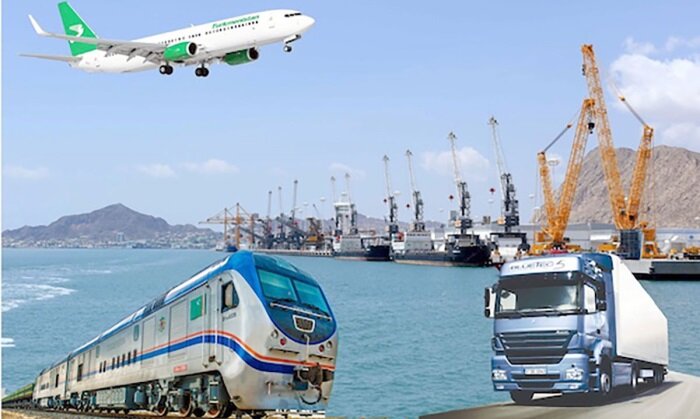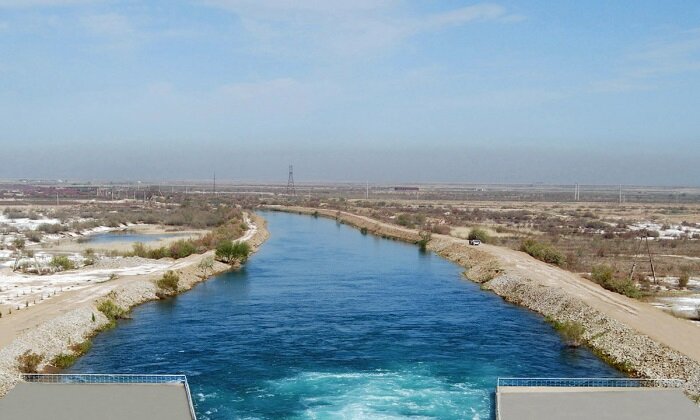Economic analyst Aronsky identified generating positions in the sustainable socio-economic growth of Turkmenistan.
 On December 3, regular author of CentralAsia.news, economist, scientist, chairman of the Union of Economists of Turkmenistan (UET), representative of the International Union of Economists, Yuri Aronsky analyzed the economic evolution of Turkmenistan over 25 years of development within the status of Neutrality.
On December 3, regular author of CentralAsia.news, economist, scientist, chairman of the Union of Economists of Turkmenistan (UET), representative of the International Union of Economists, Yuri Aronsky analyzed the economic evolution of Turkmenistan over 25 years of development within the status of Neutrality.
One of the main factors of development
World practice shows that the rapid economic growth of the state is possible only in an atmosphere of peace and stability. Therefore, the status of positive neutrality has become one of the main factors of development and prosperity for the Turkmen state.
Before gaining independence, Turkmenistan practically did not produce industrial goods on its own. And today, for example, the country has established the production of high-quality chemical and textile products, fashionable clothes and many other goods that are in great demand on world markets and that also includes oil and gas products. Almost all sectors of the domestic economy are intensively developing in accordance with the needs of the world and domestic markets on the basis of government plans and programs.
The transformation from a resource zone into an industrial state
Over the years of neutrality, more than 2,600 industrial, technical and socio-cultural facilities have been built in Turkmenistan. Farmers annually harvest more than a million tons of grain, the number of livestock and poultry has increased significantly. About 95% of agricultural products are now produced in the private sector. Thus, Turkmenistan has largely ensured food independence. Today, there are hundreds of factories successfully operating in the country. They sell products in foreign and domestic markets.
The implementation of many regional and global projects is a very important factor in positive neutrality, its activity, and effectiveness. Large-scale projects such as North-South railway, the Avaza National Tourist Zone, the Turkmen Lake, gas pipelines from Turkmenistan to China and Iran have already been implemented. The construction of the Turkmenistan-Afghanistan-Pakistan-India gas pipeline, railway Tajikistan-Afghanistan-Turkmenistan has been commissioned.
Like other post-Soviet countries, the country went through a deep economic downturn in the 1990s. However, even in such conditions, thanks to the effective economic and social reforms, Turkmenistan achieved first stabilization of the economy and real incomes of the population, and then their growth. For the period 2007–2020. the average annual growth rate of real GDP was about 10%, which is a very high indicator. As a result of effective structural transformations of the economy in terms of GDP per capita according to the classification of economic systems of the World Bank, Turkmenistan moved from the group of low-income countries to the group with middle incomes since 2001, and in 2012 — to the group of countries with upper-middle incomes.
Success is based on rigorous strategic planning
Currently, Turkmenistan is not only fully self-sufficient in grain, but has become an exporter of the crop since 2011. In 2015 the Food and Agriculture Organization of the United Nations (FAO) awarded Turkmenistan a special award for achievements in ensuring food security, as one of the Millennium Development Goals, defined in the FAO program for the period up to 2015. If in 1991 a little more than five hundred thousand tons of grain were produced in Turkmenistan, then in the last decade this figure has tripled.
It should be mentioned that the country has an internally coordinated system of strategic planning, which is based on the National Program of Socio-Economic Development of Turkmenistan for 2011-2030. The strategic goal of this and all other national programs is to further build up the foundations for the formation of a dynamic, diversified, competitive, and high-tech economy that would ensure the rational use of the existing potential and sustainable long-term economic and social development of Turkmenistan.
The implementation of these programs ensures the efficiency and growth of the economy, as a result of which the control over their implementation is carried out by the head of the state himself.
To improve the efficiency of the national economy, improve its competitiveness in the world market, as well as taking into account the volatility of the international oil market, the government has now focused on the introduction of the digital economy, the use of innovative methods and approaches in all sectors and, as a result, the transition from an industrial-raw material model towards an industrial-innovative, digital development model.
Turkmenistan is a supporter of constructive partnership
In general, in recent years, despite certain economic difficulties associated primarily with the export of hydrocarbon resources and the current demand and world prices for these resources, which is caused by the global economic crisis due to the coronavirus pandemic, it is possible with a certain optimism to take a look at the prospects for the development of the national economy and a further increase in the welfare of the population.
Summarizing the above, it must be underlined that today it is difficult to grasp and assess the gigantic scale of the path traveled by the country over the years of neutrality and the efforts of the people and the government of Turkmenistan, which were undertaken to bring the state to a leading position in the world economy, ensure a high level of culture and life of the people, prosperity, and well-being of future generations. And it is fully justified by the fact that the basis of the foreign policy of neutrality is the principle of peacefulness and good neighborliness, the preservation of the cultural values of the peoples of the planet.
Turkmenistan has always been committed to constructive partnership, which is considered the most important in the activities of any state willing to occupy a worthy niche in the system of international relations.





